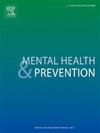Is working from home good for mental health and well-being? Associations between work location, self-rated mental health, life satisfaction, and life and work stress among Canadian adults
IF 2.4
Q2 Medicine
引用次数: 0
Abstract
Objective
It is unknown if teleworking is associated with better mental health and well-being among Canadian adult workers in the post-COVID-19 era. The objective of this study was to examine the associations between work location and self-rated mental health, life satisfaction, and life and work stress among Canadian adults.
Methods
This cross-sectional and nationally-representative study used self-reported data from the 2022 Canadian Community Health Survey (n = 24,614 individuals aged 18 years and older). Work location was categorized into three groups: working outside the home at a fixed location; working outside the home without a fixed location; and working from home. Logistic regression analyses were conducted to examine the associations between work location and the outcome measures, with adjustments for relevant covariates.
Results
Overall, 62.9 %, 12.2 % and 24.9 % of Canadian adults reported working at a fixed location outside the home, outside the home with no fixed location, and at home, respectively. Individuals working from home reported a higher level of education and many were in the business/finance/administration field (30.4 %) or in natural and applied sciences (22.4 %). After adjustment for covariates, work location was not significantly associated with self-rated mental health, life satisfaction, life stress or work stress.
Conclusions
Findings from this study suggest that the best work location for mental health and well-being is not necessarily linked to the specific physical place where it is conducted. Future research will need to better characterize the specific working conditions and identify possible causal mechanisms.
在家工作对心理健康和幸福有好处吗?加拿大成年人工作地点、自评心理健康、生活满意度、生活和工作压力之间的关系
目前尚不清楚远程工作是否与后covid -19时代加拿大成年工人更好的心理健康和福祉有关。本研究的目的是研究加拿大成年人的工作地点与自评心理健康、生活满意度、生活和工作压力之间的关系。方法:这项具有全国代表性的横断面研究使用了2022年加拿大社区健康调查(n = 24,614名18岁及以上的个体)的自我报告数据。工作地点分为三组:在家外固定地点工作;在家外工作,没有固定地点;在家工作。进行逻辑回归分析以检验工作地点与结果测量之间的关联,并对相关协变量进行调整。结果总体而言,62.9%、12.2%和24.9%的加拿大成年人分别在家庭外的固定地点、家庭外无固定地点和家中工作。在家工作的人受教育程度更高,许多人在商业/金融/管理领域(30.4%)或自然科学和应用科学领域(22.4%)工作。协变量调整后,工作地点与自评心理健康、生活满意度、生活压力或工作压力无显著相关。这项研究的结果表明,最有利于精神健康和幸福的工作场所并不一定与具体的工作场所有关。未来的研究将需要更好地描述具体的工作条件,并确定可能的因果机制。
本文章由计算机程序翻译,如有差异,请以英文原文为准。
求助全文
约1分钟内获得全文
求助全文
来源期刊

Mental Health and Prevention
Medicine-Psychiatry and Mental Health
CiteScore
2.10
自引率
0.00%
发文量
22
审稿时长
24 days
 求助内容:
求助内容: 应助结果提醒方式:
应助结果提醒方式:


